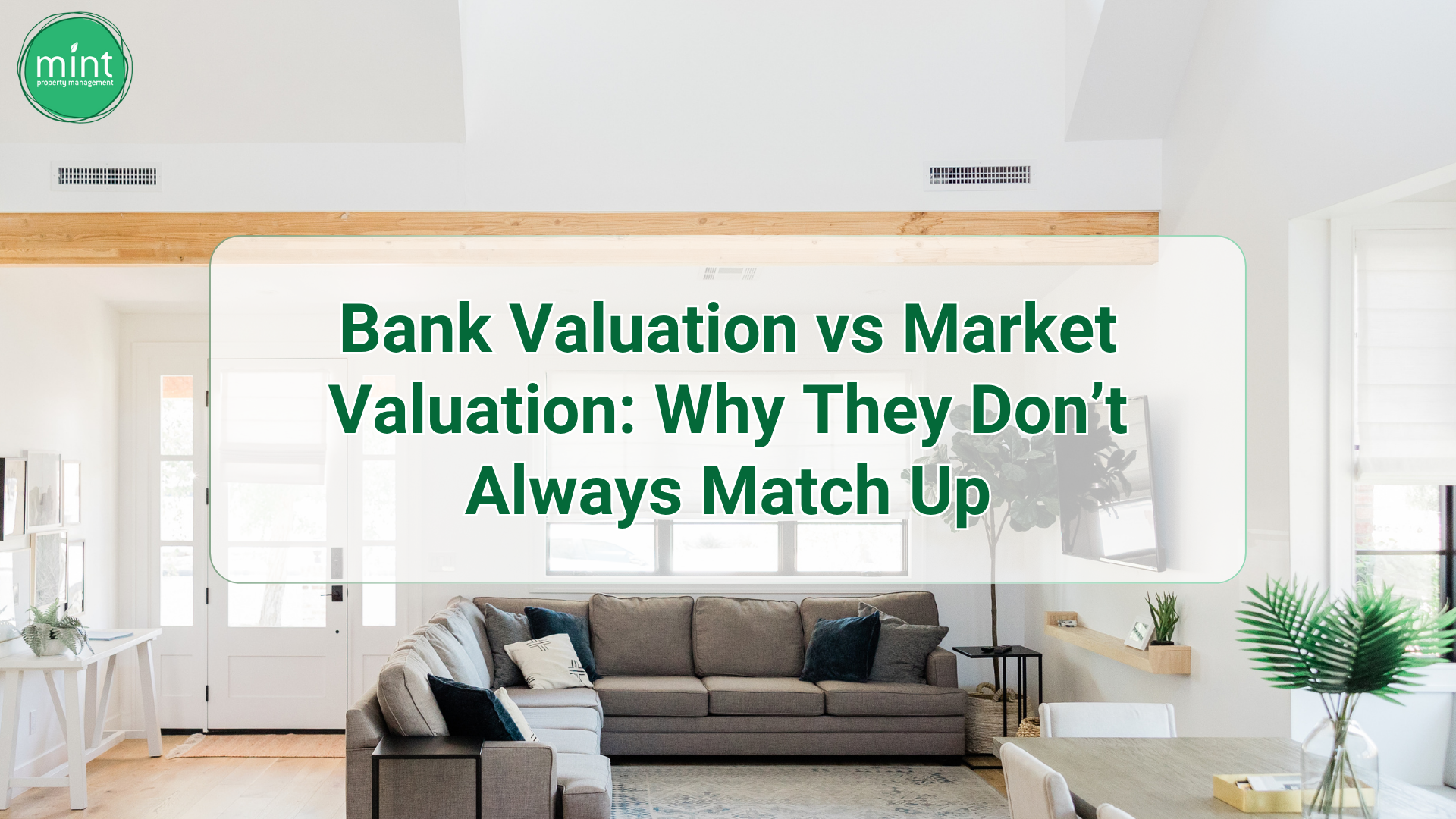If you’ve ever had a bank come back with a lower-than-expected property valuation, you’re not alone (and no, it’s not personal).
Let’s break it down: bank valuation and market valuation (often called a “market appraisal”) are two very different numbers, and they’re used for two very different reasons. Understanding the distinction can help you avoid unpleasant surprises, especially when planning your next investment move.
What is market valuation (appraisal)?
A market valuation (or appraisal) is what your property could reasonably sell for in current market conditions. It assumes a willing buyer, a willing seller, proper marketing, and no pressure from either side. Agents use recent comparable sales to estimate this number, often with a bit of insight into buyer demand and suburb trends.
This figure matters if you’re selling or just trying to get a realistic idea of what your property’s worth.
What is bank valuation?
A bank valuation is what a lender is comfortable using to back your loan. As Westpac puts it:
Translation? It’s less about the true market value, and more about protecting the bank in case you default.
Why are bank valuations often lower?
Banks are conservative by nature. Their priority is risk management, not helping you maximise your borrowing power. If they need to repossess and sell quickly, they want to make sure they can cover their costs.
A valuation ordered for a lender generally lands on the conservative side because it’s geared toward worst-case recovery rather than an open-market price. In short, the higher the perceived risk, the tighter the number.
Valuers have more discretion than you might think
Valuers use comparable sales as a guide, but not a rulebook. Two homes on the same street could sell at very different prices, depending on factors like urgency, off-market negotiations, or even a fresh paint job. And when valuers are contracted by banks, the pressure to be conservative is real.
Buying new? Be prepared for a valuation mismatch
If you’re buying off-the-plan or in a brand-new development, bank valuations often fall short of the contract price. Why? Because some valuers compare your brand-new property to older, established homes nearby. That comparison doesn’t always reflect the newer specs, builder warranties, or energy efficiencies that add long-term value.
It’s frustrating, but common. And for investors, it can throw off borrowing plans fast.
What can you do if the bank’s valuation comes in too low?
Option 1: Request a reassessment. It’s rare, but if you’ve got compelling recent sales data to back up your case, it might work.
Option 2: Try a different lender. A new bank means a new valuer… and possibly a more generous number.
Option 3: Pay for your own independent market valuation. Just be aware: unless the bank agrees to use it, it won’t change the loan outcome.
Oh, and don’t forget: even if the valuation stacks up, your loan still depends on the bank’s final approval (and possibly their mortgage insurer’s opinion).
Thinking about an off-the-plan purchase? Tread carefully
A lot can change between contract signing and settlement: interest rates, local demand, and comparable sales. Banks only value the property right before settlement, and if it comes in low, you have to make up the difference.
Our advice? Don’t go unconditional unless you’ve got some financial wiggle room.
Final thoughts from your property manager
As an investor, you’re playing the long game. Valuations aren’t just numbers on paper, they impact your borrowing power, cash flow, and portfolio growth.
So if you’re navigating a tricky valuation or just want a second opinion before buying, feel free to reach out. At Mint, we’re not here to sell, we’re here to support your investment strategy, one smart move at a time.

